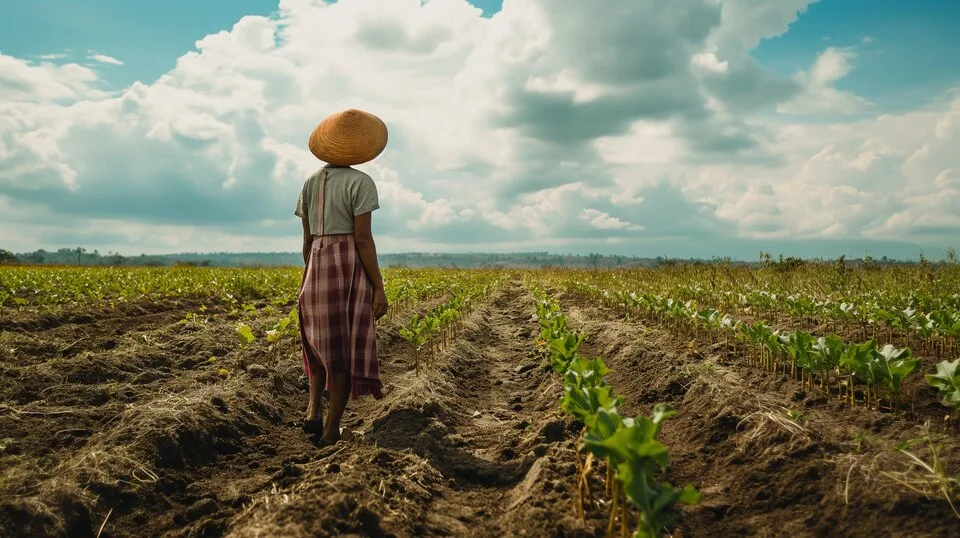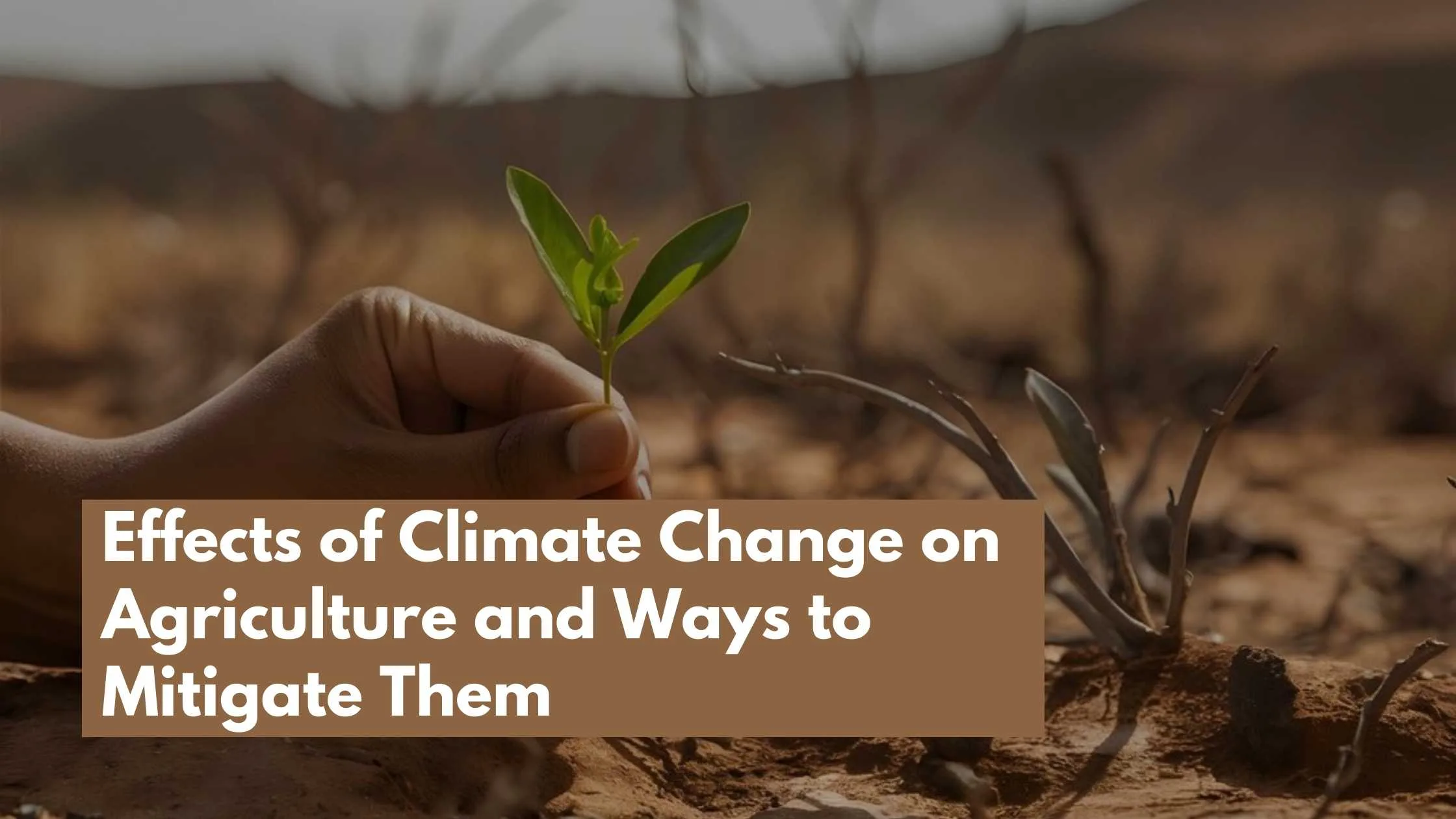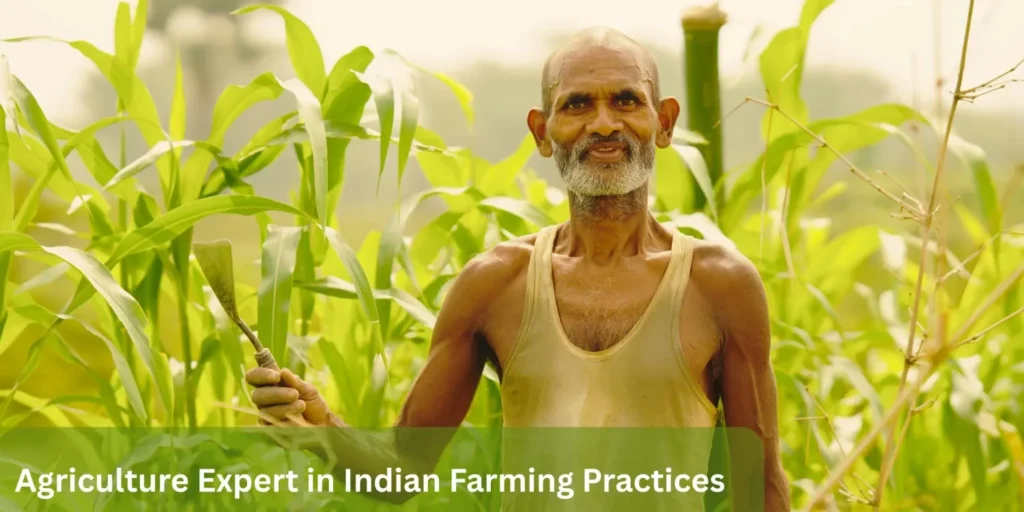Introduction:
Agriculture is the foundation of human civilization, which offers sustenance, stability in the economy, and a sense of cultural identity. Nonetheless, agriculture has particular difficulties in the face of quickly shifting climatic conditions. Climate change has a significant and diverse impact on agriculture, affecting soil health, crop production, water availability, and pest management. However, these difficulties also present a chance to innovate, adjust, and mitigate the negative effects of climate change. Through this article, we will examine the complex relationship between agriculture and climate change, outlining its effects and offering possible solutions to build resilience in farming communities across the globe.

Impact of Climate Change on Agriculture:
- Altered Growing Seasons: Traditional growth seasons are disrupted by climate change, which also causes severe temperatures, erratic rainfall patterns, and unpredictable weather. Farmers face serious issues as a result of these changes in climate dynamics, which have an impact on crop development, flowering, and maturation cycles.
- Reduced agricultural Yields: Increasing temperatures work in tandem with an increase in the frequency and severity of extreme weather events, like storms, floods, and droughts, to cause a decrease in agricultural yields. Food security and livelihoods are put at risk by increased yield losses brought on by heat stress, water scarcity, and degraded soil.
- Water Scarcity: Patterns of precipitation have changed, and glaciers are melting, leaving less water available. This has an impact on crop output, animal management, and irrigation systems. Reduced water supplies make the home, industrial, and agricultural sectors more competitive, which exacerbates socioeconomic inequality and environmental damage.
- Spread of Pests and Diseases: Temperatures that are too warm encourage the growth of pests and diseases, endangering the stability of crop yields and crop health. Global food production is seriously threatened by invasive species, like the Asian citrus psyllid and autumn armyworm, which calls for integrated pest management techniques.
- Soil Degradation: The fertility and resilience of soil are threatened by climate change, which also speeds up soil salinization, erosion, and nutrient depletion. Deforestation, land degradation, and intensive agricultural practices all contribute to soil deterioration, which in turn lowers crop yields, reduces biodiversity, and degrades ecosystems.
Ways to Mitigate the Effects of Climate Change on Agriculture:
- Sustainable Agricultural Practices: Agroecological practices that support biodiversity, soil health, and climate resilience include organic farming, conservation agriculture, and agroforestry. Crop rotation, intercropping, and integrated pest control are examples of practices that increase agricultural output, reduce greenhouse gas emissions, and improve ecosystem services.
- Strategies for Water Management: By using effective irrigation methods, crop water usage efficiency is improved, and water resources are conserved. These methods include drip irrigation, micro-sprinklers, and rainwater gathering. Investing in soil moisture monitoring systems, drought-tolerant crop types, and water-saving technologies increases adaptive capacity and lowers susceptibility to water constraints.
- Climate-Resilient Crop Varieties: Crop adaptation to changing climatic circumstances is improved by breeding climate-resilient crop varieties, which incorporate features including heat tolerance, drought resistance, and pest resilience. Climate-smart crop varieties are developed and cultivated more quickly when genetic resources, biotechnology, and participatory plant breeding are used.
- Agroforestry and Carbon Sequestration: Agroforestry techniques, when incorporated into agricultural landscapes, can improve carbon sequestration, biodiversity conservation, and ecosystem resilience using integrating trees, shrubs, and perennial crops. In addition to reducing greenhouse gas emissions, agroforestry systems also improve soil fertility, water retention, and microclimate adjustment.
- Policy Support and Capacity Building: The adoption of climate-smart agricultural practices and technologies is facilitated by the enactment of supportive policies, incentives, and regulatory frameworks. This process also builds capacity. Within farming communities, research, extension services, and farmer education investments improve adaptive capacity, knowledge exchange, and innovation diffusion.
Conclusion:
The agricultural sector faces significant obstacles due to climate change, which jeopardizes rural lives, environmental sustainability, and global food security. However, by embracing creativity, teamwork, and sustainable methods, we can strengthen agricultural systems’ resilience and lessen the negative effects of climate change. To protect Earth’s abundance for future generations, we must prioritize climate action, empower farmers, and build partnerships. It is our joint duty as stewards of the land to support just, resilient, and sustainable agriculture systems that coexist peacefully with the environment.
References:
- IPCC Special Report on Climate Change and Land: https://www.ipcc.ch/srccl/
- FAO. (2020). Climate change and agriculture: http://www.fao.org/3/cab156e/cab156e.pdf
- Lal, R. (2020). Soil degradation as a reason for food insecurity: https://link.springer.com/article/10.1007/s42729-020-00237-6
- Lobell, D. B., et al. (2019). Greater sensitivity to drought accompanies maize yield increase in the U.S. Midwest: https://www.nature.com/articles/s41586-019-1468-1
- Vermeulen, S. J., et al. (2012). Climate change, food security, and smallholder agriculture: https://www.ncbi.nlm.nih.gov/pmc/articles/PMC3390105/
FAQs
- What are the primary impacts of climate change on agriculture?
Answer: Climate change affects agriculture through altered growing seasons, decreased crop yields, water scarcity, the spread of pests and diseases, and soil degradation.
- How can farmers mitigate the effects of climate change?
Answer: Farmers can adopt sustainable agricultural practices, implement water management strategies, utilize climate-resilient crop varieties, integrate agroforestry, and seek policy support and capacity building.
- What are some examples of sustainable agricultural practices?
Answer: Sustainable agricultural practices include organic farming, conservation agriculture, agroforestry, crop rotation, intercropping, integrated pest management, and soil conservation techniques.
- How does climate change impact water availability for agriculture?
Answer: Climate change leads to changes in precipitation patterns, melting glaciers, and increased frequency of extreme weather events, resulting in water scarcity for agriculture.
- What role can policy support play in mitigating climate change impacts on agriculture?
Answer: Enacting supportive policies, incentives, and regulatory frameworks can facilitate the adoption of climate-smart agricultural practices and technologies, empowering farmers to build resilience against climate change.




Reading about the impact of climate change on agriculture reinforces the importance of sustainable farming practices and environmental stewardship.
It’s heartening to see the agriculture sector taking proactive steps to adapt to the impacts of climate change and build resilience.
Climate change may present challenges for agriculture, but it also offers opportunities for creativity and innovation in farming practices.
Learning about ways to mitigate the effects of climate change on agriculture reminds me of the power of innovation and collaboration.
Reading about the impact of climate change on agriculture underscores the urgent need for action to reduce greenhouse gas emissions.
Farmers are on the front lines of climate change, but they’re also leading the charge in finding solutions – their resilience is truly admirable.
Climate change may pose challenges for agriculture, but with the right strategies, we can overcome them and thrive.
It’s inspiring to see how innovative solutions are being developed to help farmers adapt to the challenges of climate change.
Learning about ways to mitigate the effects of climate change on agriculture gives me hope for a more sustainable future.
Reading about the impact of climate change on agriculture reminds me of the resilience and adaptability of farmers – they truly are heroes!